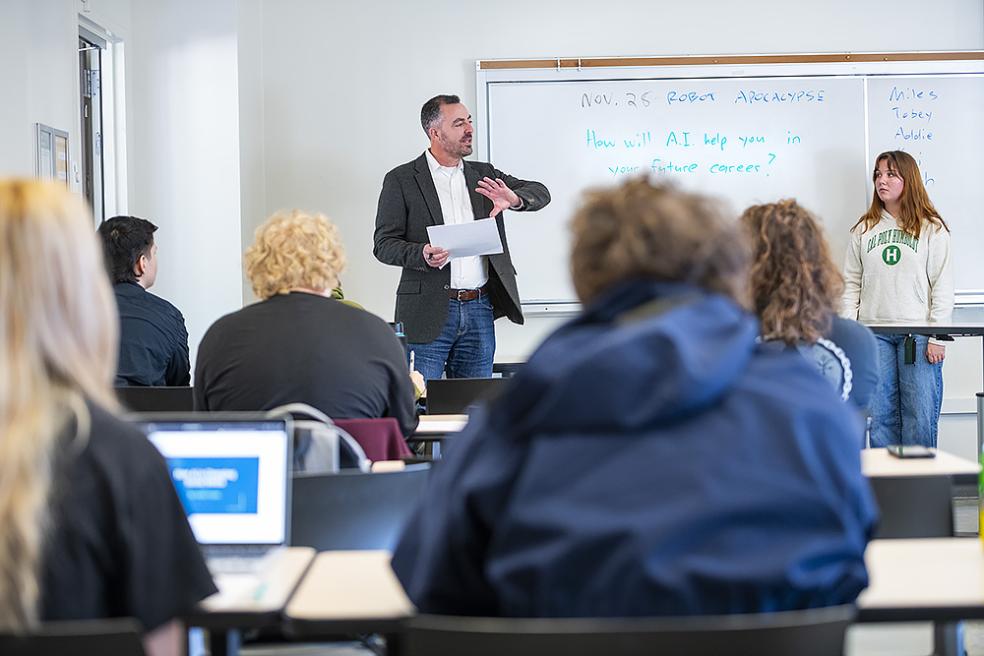
“Two years ago, AI tools were simpler, but now companies like ChatGPT and many others are evolving AI at a pace that academia was unprepared for. As educators, we should seriously consider its implications for teaching and learning and find mindful ways to incorporate it into the classroom to improve learning outcomes where relevant,” says Enoch Hale, director of the Center for Teaching & Learning.
The center works with faculty to explore impactful and possibly different teaching methods and technologies to improve learning outcomes in their curriculum. With growing concerns over AI, the CTL is assembling a list of resources for faculty to guide AI integration in their classroom.
Within the past year, the center has set up webinars and provided example assignments that involved AI and example statements for faculty to enforce if and how AI is used in their classes. Hale hopes this list of resources will be quite robust by the end of the Spring semester.
Hale says there is a range of opinions regarding AI. Some argue against AI and believe this technology could negatively affect students' critical thinking skills. Meanwhile, others—like Politics Professor Noah Zerbe—believe that AI is another tool students can utilize in their coursework to further critical thinking development.
Zerbe is a proponent of using AI personally and in the classroom and teaches his students how to use it for their assignments. For example, one of his assignments asks students to use ChatGPT as another peer review to provide feedback on their papers, like outlining missing concepts and how to improve their essays.
“Teaching students how to use AI effectively is important. It’s useful for clarifying concepts, brainstorming, and editing writing. Through my assignments and courses, I guide students through effectively using AI and emphasize the importance of fact-checking and not blindly relying on AI-generated content,” Zerbe says.
Zerbe encourages his students to use AI software, as he considers it a powerful tool for helping them become better writers. However, he also requires his students to inform him when they use it by attaching a one-page addendum to assignments explaining how they used it and analyzing the help provided by the AI software.
“We're teaching our students to be critical thinkers. Therefore, engaging critically with AI is just as important as engaging critically with any other source,” Zerbe says.
He is convinced future employers will expect graduating students to know how to use AI effectively, in the way an engineering graduate would know how to use a calculator, because of its efficiency.
Both Hale and Zerbe believe that AI is here to stay and will continue evolving, so carefully integrating it into coursework equips students with the skills to navigate its nuances and adapt to the changing times.
“I think it's going to have a profound impact, and we're going to be trying to figure out what the consequences of AI are for a long time. It's certainly not going away. And so, I think that trying to ignore it or pretend like it doesn't exist, or not thinking about how to integrate it into teaching, is a problematic way to go. That's why I've been embracing it. I think it’s the future,” Zerbe says.